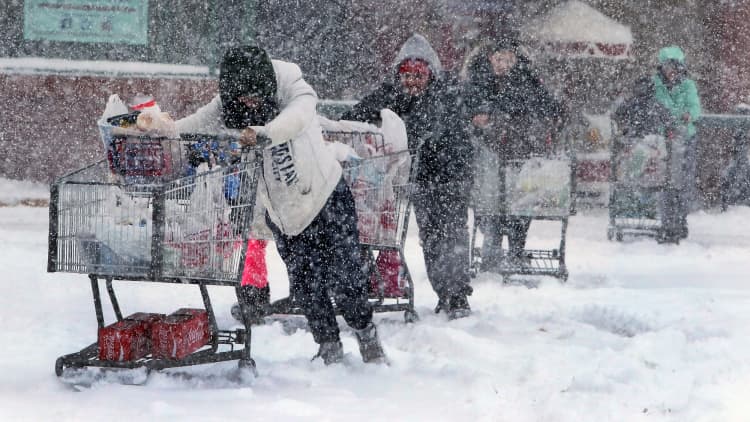
Boston has recorded its highest tide in nearly a century on the heels of this week's snowstorm.
The Boston office of the National Weather Service said the city reached the record in a tweet sent Friday:
This tide is the highest in the area the weather service has seen since it began keeping records in 1921. The tide has already contributed to icy flooding across the city.
For example, this tweet from the Massachusetts Bay Transportation Authority Transit Police shows water gushing down the stairs of one of Boston's underground rail stations.
"I think what to take away from this is how unprecedented it is," said Benjamin Sipprell, a meteorologist with the weather service in Boston.
The new record edges out the one set during the Blizzard of '78, another time when a winter storm flooded the streets of Boston. Apart from beating the record, though, there is something else about this storm that makes it so unique: it happened so quickly.
In the case of the 1978 blizzard, it took several tide cycles over days for the highest tide levels to develop, Sipprell said. In contrast. this week's record was set in a single tidal cycle.
This was partly due to the rapidly dropping pressure of the storm, which made it intensify rapidly, and the fact that there had been a "supermoon," or a moon at perigee, or its closest point to Earth. Full moons tend to intensify tides, and have an even greater impact when the moon is at perigee.
This is what sent waves of ice and water into Boston's days before temperatures are expected to fall below zero.
"I think we are still trying to grasp the magnitude of what happened yesterday," Sipprell said, referring to Thursday. "This is a storm that should be remembered."


